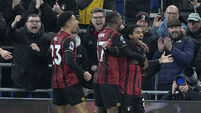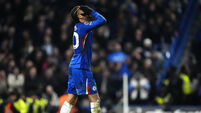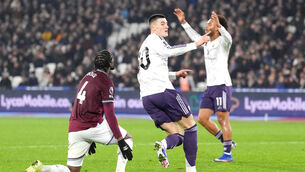A brief history of time
TIME, as my old mate Einstein liked to say after a few scoops, is a quare class of thing. Or words to that effect. This coming week marks the 30th anniversary of the very first production from my old alma mater, Hot Press, which means that, among other things, it’s 30 years since the Sex Pistols outraged Jubilee Blighty with ‘God Save The Queen’.
Clearly, this is not possible on any level, and not least because yours truly was actually embarking on what passes for his journalistic career at that point in time. So short of being such a gifted prodigy that I would have had to be covering the punk scene in nappies – hence, the safety pin chic, sez you — I simply refuse to accept that 30 years have passed since I first heard Johnny Rotten howling ‘Noooo future’ and figured that there might indeed be a future in this sort of thing.














